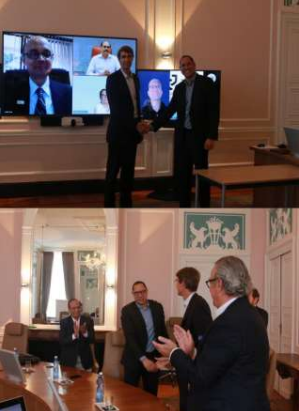AM Green is pioneering the production of Sustainable Aviation Fuel (SAF) that meets stringent quality standards while significantly reducing the carbon footprint of aviation. Our commitment to sustainability aligns with the global push toward greener aviation, making AM Green key player in the transition to cleaner skies.
The FT process is a collection of chemical reactions that converts syngas (a combination of CO and H2). It is a well-known process in which gasification turns woody biomass into syngas, which is then transformed into jet fuel via the Fischer-Tropsch synthesis procedure. Feedstocks are numerous sources of renewable biomass, such as municipal solid waste, agricultural wastes, forest wastes, woo, and energy crops. The FT reactions occur in the presence of metal catalysts, with the typical temperature set as 150 to 300℃ (302 to 572℉).
The FT process is a collection of chemical reactions that converts syngas (a combination of CO and H2). It is a well-known process in which gasification turns woody biomass into syngas, which is then transformed into jet fuel via the Fischer-Tropsch synthesis procedure. Feedstocks are numerous sources of renewable biomass, such as municipal solid waste, agricultural wastes, forest wastes, woo, and energy crops. The FT reactions occur in the presence of metal catalysts, with the typical temperature set as 150 to 300℃ (302 to 572℉).
Ethanol production has evolved significantly over the years as technology has advanced, especially with the emergence of second-generation (2G) ethanol derived from lignocellulosic feedstocks. Unlike first-generation ethanol which is made from food crops, 2G ethanol is made from non-food biomass such as agricultural wastes, forestry residues, and energy crops.
